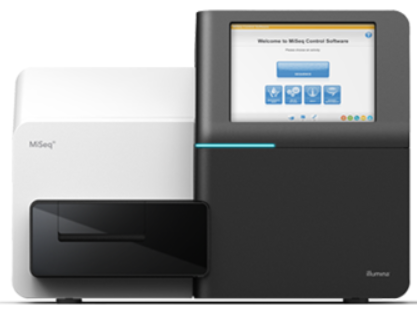FDA allows marketing of ‘next generation’ gene-sequencing devices
A boost for personalized medicine and pharmocogenomics
November 25, 2013
Two of the devices allow laboratories to sequence a patient’s genome for any purpose, according to Jeffrey Shuren, M.D., Director of FDA’s Center for Devices and Radiological Health in an FDA blog.
“The software compares the patient’s sequence to a normal human genome sequence used for reference and identifies the differences.”
The other two devices can only detect changes in the CFTR gene, which can result in cystic fibrosis, a disease inherited through a faulty CFTR gene from both parents. (More than 10 million Americans are carriers of cystic fibrosis.)
One of these tests could identify men and women with the faulty CFTR gene; the second test looks for other, perhaps unexpected, mutations in the CFTR gene that could be having an impact on the patient’s health, Shuren said.
Personalized medicine and pharmacogenomics
Based on this FDA decision, “clinicians can now selectively look for an almost unlimited number of genetic changes that may be of medical significance,” National Institutes of Health head Francis Collins and FDA head Margaret Hamburg write in an editorial in the New England Journal of Medicine (open access).
For example, “patients diagnosed with a cancer for which there are few therapeutic options may … benefit from drug therapies originally aimed at other cancers that share common driver mutations.”
What happens when your entire genomic information is in your electronic medical record, they suggest? So instead of having to take a DNA sample, ship it, and wait for a lab to run a test, only a quick electronic query would provide your physician with the needed information to determine the course of treatment. That includes pharmacogenomics — the use of genomic information to identify the right drug at the right dose for each patient.
But Collins and Hamburg also caution that new genomic findings need to be validated before they can be integrated into medical decision making. “Doctors and other health care professionals will need support in interpreting genomic data and their meaning for individual patients. Patients will want to be able to talk about their genetic information with their doctor.. and participate alongside their doctors in making more informed decisions.”
That
all sounds great, but what happens when non-medically trained
Affordable Care Act “navigators” and flakey, hacker-prone medical
insurance information systems (like the disastrous kludge for ACA
developed by NIH) get access to this highly sensitive information? —
Editor
(¯`*• Global Source and/or more resources at http://goo.gl/zvSV7 │ www.Future-Observatory.blogspot.com and on LinkeIn Group's "Becoming Aware of the Futures" at http://goo.gl/8qKBbK │ @SciCzar │ Point of Contact: www.linkedin.com/in/AndresAgostini
 Washington
Washington